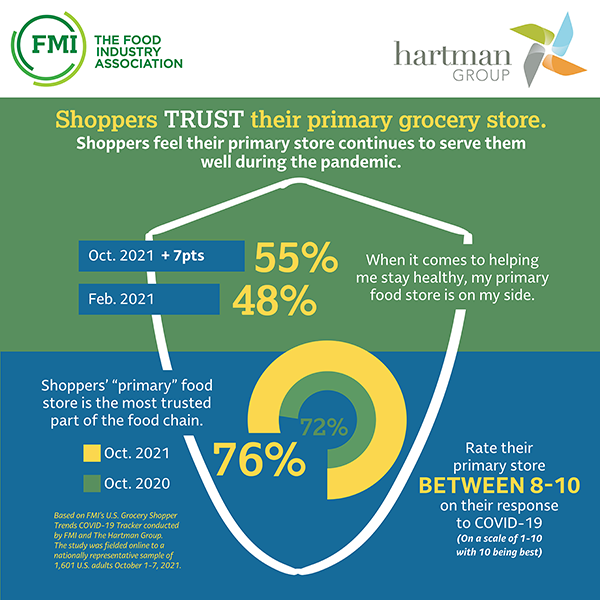“Consumers remain aware of pandemic impacts on the supply chain, but most are confident that with some planning they will find their favorite foods at reasonable prices and share traditional menu with loved ones this holiday season,” said Leslie G. Sarasin, President and CEO of FMI, in a press release. “Both grocers and consumers have demonstrated tremendous resilience over the last year, and shoppers are excited about a cautious return to normalcy for their holiday gatherings this year.”

Additional findings from the report, as outlined in the release:
- 58% of shoppers expressed some concern about being able to purchase groceries they need for holiday meals, but that sentiment hasn’t changed since the summer. FMI said this suggests that consumers aren’t overly concerned with reports of product shortages this winter.
- Despite concerns about inflation, average household grocery spending has held steady at about $144 per week. This is down from the $161 per week at the height of the pandemic in 2020, FMI reported.
- Most shoppers said they expect to celebrate the holidays the same as before the pandemic.
- Roughly half of shoppers said COVID-19 will have an impact on how they celebrate; some said they plan to hold smaller gatherings, watch events like sports and parades from home, and practice social distancing.
- 76% of shoppers were satisfied with their primary grocery store’s response to the pandemic.
- 55% of shoppers said they trust their primary food store for helping them stay healthy.










